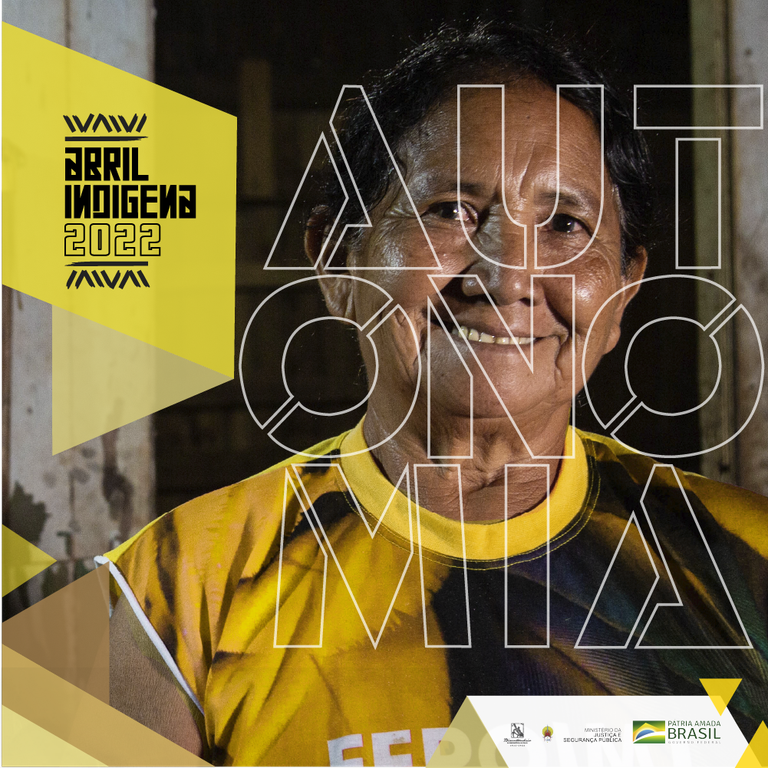Indigenous April: Cacique stands out as an example of female leadership in her community
The name of the chief Miriam Kazaizokairo, from Aldeia Bakaval, is unanimous among the indigenous people of the Utiariti Indigenous Land (MT): in the community, she is considered one of the main leaders in the history of the Haliti-Paresi ethnic group in Mato Grosso. At 68 years old, the retired teacher is an example of strength, work, wisdom and protagonism, influencing indigenous men and women of different generations.
“Today I stay at home more, but when I need to, I still like to be present in our community's cultural activities, such as offerings. When young people need some guidance or have a problem, I help too, they come to ask my opinion, they have this consideration, they recognize and respect when I say something, this is important to me”, says the chief.
At each discussion to improve the living conditions of the indigenous people of the ethnic group, the cacique was present. Two memories mark her life, as references among the main struggles won by the community: the opening of the road between the Indigenous Lands, now known as Rodovia MT-235; and the beginning of work with mechanized farming, currently with the planting of soybeans, corn and beans on 19,600 hectares, less than 2% of the total indigenous area.
“I fought for our land and for the creation of this road that allowed access from the village to the city and schools. It was a very difficult time, of the struggle of Indians against Indians, 'Indians against whites'. I knew it was going to be important to have this access and I fought for it. We also faced a lot of people to start work on the crops. After a lot of discussion and negotiation, it worked, the majority always wins. Our ethnicity is known for being a negotiator, we don't accept anything,” she points out.
Miriam highlights the importance of the support of the National Indian Foundation (Funai) in this trajectory, especially in the last 3 years, when family farming and projects in the fields gained prominence. “It was essential to have Funai present, encouraging and supporting agricultural work, providing material and machinery when necessary. Today we have an independent work structure, which is an example. But we can't forget the help we had. Now, my dream is to implement a vocational school within the villages, to train our Indians and so that, in the future, they can train other Indians as well. I think that by studying and generating income in the villages we will be independent and free”, she says.
Life before these projects was marked by limitations. Miriam says that, in the past, the community lived in poverty. The men worked in rubber extraction, but they were only able to trade every 2 months. With no food, they waited for the priest to return to share what little he had and see what would happen the following week. Years later, with the start of the construction of the road and the end of rubber, the indigenous people left the village and went to work on neighboring farms, many of them in precarious conditions.
“Women stayed in the villages because their children were at school, while the men spent 30, 60 days on the farms without returning. Years later, we decided to start the work they did on farms, on our own land, planting our crops. Funai gave us a tractor, because they had an indigenous post here in the region. We started with the planting of 8 hectares, we ran after fertilizer and work material. Almost everyone was against it, but we saw that it was necessary to guarantee our survival. The farm was built in a place that does not harm anything. We have the sacred flute place, nobody moves there. We have the place where we get the straw to make the traditional house, nobody moves there. Farming has its right place”, explains Miriam.
Chief Miriam celebrates the current success of the project started by her and by other leaders in the region who have died, but who left an important legacy. “I feel happy and fulfilled to see that the younger ones bought this fight and continued the work we started back there. Today, I see them working, they became adults walking with their own legs, studying to be able to continue in the villages”, she adds.
Funai support
The sustainable economic use of Indigenous Lands as a tool for generating income in the villages has been one of Nova Funai's main focuses. In the last 3 years, investments in ethnodevelopment were approximately R$ 40 million. The resources were allocated to various actions aimed at self-reliance
.

 Mr. Alessandro Jacob speaking about Brazilian Law on "International Bar Association" conference
Mr. Alessandro Jacob speaking about Brazilian Law on "International Bar Association" conference